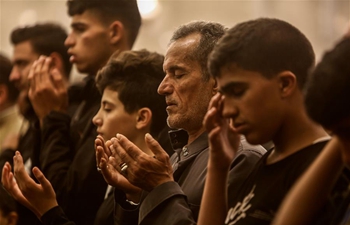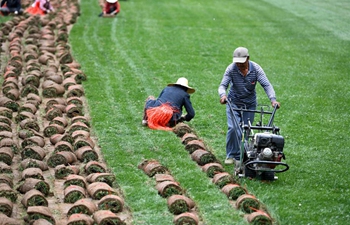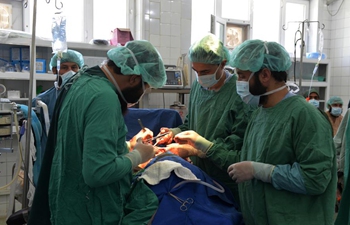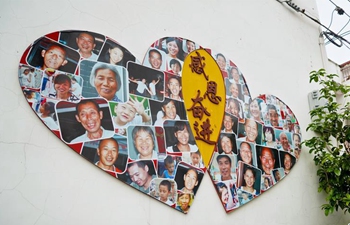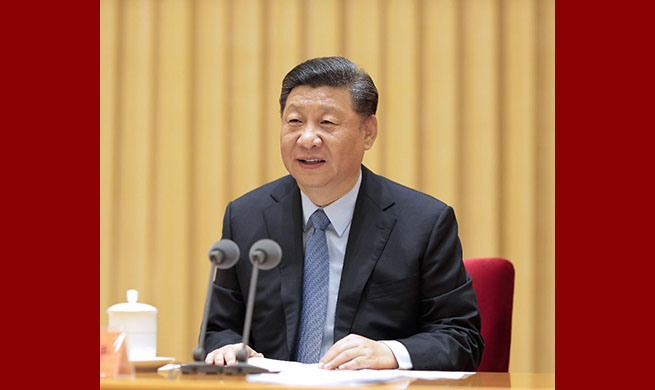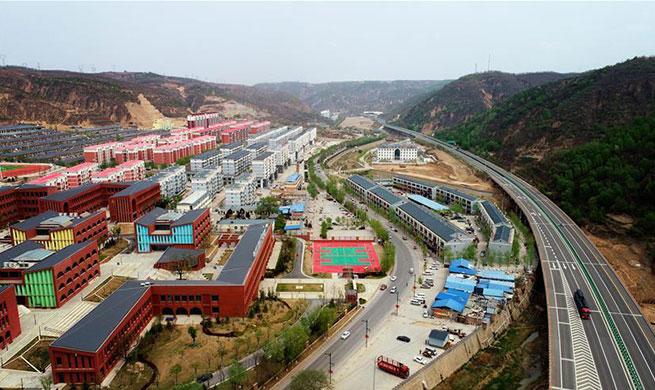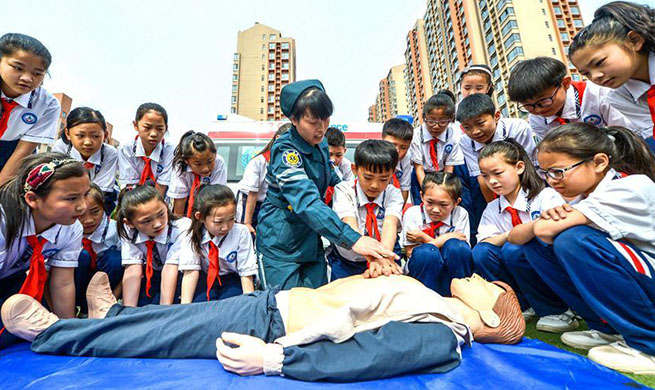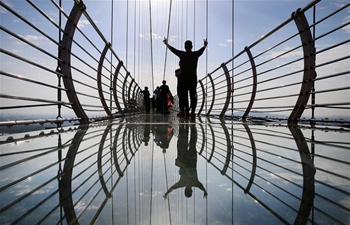by Mao Pengfei, Nguon Sovan
PHNOM PENH, May 8 (Xinhua) -- China has been playing a greater role in safeguarding and developing Cambodia's cultural heritage, Apsara National Authority's spokesman Long Kosal said.
Apsara National Authority is the management authority responsible for protecting and preserving the Historic Site of Angkor, a world heritage site, located in northwest Cambodia's Siem Reap province.
In a recent interview with Xinhua, Kosal said China has helped restore ruined temples in the complex of Angkor since 1997 by renovating the Chau Say Tevoda temple and the Ta Keo temple.
The work on Chau Say Tevoda was concluded in 2008 and that on Ta Keo, which began in late 2010, was finished in 2018, he said.
"We're very satisfied with the results of renovation work conducted by the Chinese experts on the two temples," said Kosal, who is also the director of Apsara National Authority's communications department.
"Chinese experts' skills and expertise in renovating the two temples are very high and the results of their renovation work have been highly evaluated by the ICC-Angkor's technical committee," he said.
The ICC-Angkor stands for International Coordinating Committee for the Safeguarding and Development of the Historic Site of Angkor.
"The Chinese experts receive admiration not only from the archaeologists, but also from local and foreign tourists for their excellent work in restoring the two temples to their original shapes," he said.
Kosal said he himself was also impressed with the Chinese experts' high skills and expertise in restoring the temples to their previous forms.
The spokesman said after decades of participation in the protection of Angkor, it was no doubt that the Chinese experts have grown up from followers into team leaders in the international arena of cultural heritage protection.
"I think that China has been playing a bigger role in safeguarding and developing cultural heritage of humanity in Cambodia and other countries," he said.
Kosal said Cambodia has three world heritage sites, namely the Historic Site of Angkor, the Preah Vihear Temple, and the Sambor Prei Kuk Archeological Site, and China has been involved in the restoration work on ruined temples in two sites.
"China has helped protect ancient temples in the Angkor and has also expanded her assistance to the Preah Vihear Temple," he said, adding that China is currently the co-chair of the ICC-Preah Vihear.
"This is a practical example of China's active support for the protection of world heritage sites," he said.
NEW RENOVATION PROJECT UNDER CHINA'S AID TO START
Kosal said last year, Cambodia entrusted China to renovate the Royal Palace of Angkor Thom in the Angkor complex, and the 11-year renovation work was expected to begin soon.
"We entrusted China to restore the former Royal Palace of Angkor Thom because we recognized China's role, effort, commitment and attention to safeguarding and developing the Historic Site of Angkor," he said. "We're totally confident in the Chinese experts' skills and expertise."
The spokesman said the renovation work on ancient temples is not like the renovation of modern structures. It needs high skills, expertise and commitment, and the Chinese experts are qualified enough to achieve this important mission.
"This project will contribute further to expanding long-standing cultural relations between our two countries," he said. "We hope that the Chinese experts will bring this ruined Royal Palace of Angkor Thom back to its previous glory."
CHINA'S AID VITAL TO CAPACITY BUILDING FOR CAMBODIA
Kosal said China's aid has not only greatly contributed to preserving ancient temples, but also helped train Cambodian experts on renovation and preservation work.
"Through these projects, our experts' capacity has been improved and some have become project leaders, technicians and consultants," he said. "This results from fruitful cooperation between Cambodia and China."
According to the spokesman, local experts have also learned Chinese language, taught by teachers sent from the Confucius Institute.
Meanwhile, Kosal praised some Chinese archeological experts who have helped save Cambodia's ancient temples, saying that their devotion to the cause of cultural heritage protection is "highly appreciated and honored."
Sharing his view about more young Chinese experts in temple renovation projects, he said young Chinese experts are also necessary to ensure work sustainability for a long run.
"Currently, technology has also played an important role in preserving ancient temples, so younger generation experts may bring new ideas, visions and technology in assisting to renovate and to preserve ancient temples," he said.

